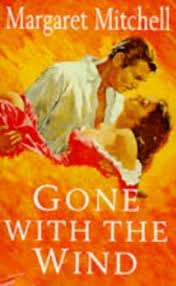Introduction
I have selected four editorials which I really liked and I found interesting. I also provide a summary, an opinion and favorite parts for the first two and for the last two have just listed them as assigned.
# 1 ¡Bailemos!

In the editorial Bailemos! written by Mario Alegre Barrios, the author uses a reflective voice to express his concerns on certain alarming situations that are occurring in Puerto Rico. He worries about his negative behavior towards those situations and how this behavior can’t change or stop things from occurring. Later in the text, he decides to change his negative perspective toward Puerto Rico and invites us the readers to do the same thing. He chooses to seek for a positive perspective and thinks he could find looking on Puerto Rico’s future. In other words, he wants people to change their negative perspectives and star to believe that there is hope for Puerto Rico. One quote that demonstrates he’s way of thinking is when he says that “no hay mejor manera de comenzar la semana que dejándose llevar por ese frenesí colectivo tan característico nuestro, cuando nada nos parece imposible, cuando sabemos más allá de toda duda que muy pronto… volveremos a ser un país en todo el sentido de la palabra”. What this quote means is that it might be difficult to have a positive perspective on Puerto Rico because doubt can stand in our way and we might don’t think that there is a possible change. One thing that really stands out is that the author persists and convinces us to don’t let doubt take over the lively passion that identifies us as puertoricans. In a way the author puts a very passionate effort on writing this editorial. We see that it is written in a formal way and with a convincing style. He can convince you and change your perspective only by reading this editorial. He is very clear with his ideas and does a great job on supporting them. Only by looking at the title we can get so motivated and interested in the message that this editorial carries. Although, it also makes you question what the purpose of the author is when he come up with this title. Finally, if we take a look on content we can deduce that what this author wrote has a deep cultural meaning on Puerto Rico’s current situations.
Favorite parts:
Reference
http://www.elnuevodia.com/columna-bailemos-1646935.html
Favorite parts:
- "siempre hay razones para la esperanza"
- "apostar por la alegría, para esperar el futuro con impaciencia".
- "un arrepentido recién salido de las tinieblas del pesimismo, del pesar, de la duda".
Reference
http://www.elnuevodia.com/columna-bailemos-1646935.html
# 2 A Novel Scorned

In the editorial A Novel Scorned, the author Claire Needell, writes about how she as a young adolescent in middle school read continuously Margaret Mitchell’s epic romance, “Gone with the Wind.” Explains how she read it several times and how her family and other people considered it deranged. Also mentions how she was very driven to the fact that the book presented a distorted view of womanhood and its portrayal of romantic love. “Gone with the Wind” was like her “Twilight” series. Although, mentions that one she enters high school she puts aside the novel and discover other books, Claire Needell compares herself with Scarlett and her romantic thinking. Later on she forgets about the novel but again remembers it when speaking with a friend about their daughters and their fascination with romances. Then she realizes that right now in this point of her life that she is getting a divorce and going to be a single woman has stepped out of such romantic paradigm. She stills believes that she has a Scarlett-ish sensibility on the perils of love and demonstrates it with a quote “It is a thousand-and-some-page proof of the human need to seek love”. Regardless to her experiences and how she compares herself with the main character she feels that she is too experienced and humble to scorn. I liked the fact that the author wrote this editorial in a comparative and narrative style because it is easy to grasp and to follow. I think the author was very passionate when writing this editorial because in it she freely expresses her adolescent experience on reading and how it influenced her love life. The thing that made this editorial so interesting to me was how it was written from the beginning with simple language use as if a teenage had written it.
Favorite parts:
Reference:
http://opinionator.blogs.nytimes.com/2013/11/20/a-novel-scorned/?ref opinion
Favorite parts:
- “Gone with the Wind” made me feel that a part of myself might be like Scarlett, that I, too, might be capable of caring about the wrong things in life, so long as I was loved by a man".
- "And so I forgot about “Gone With the Wind.” Until recently, when I was talking with a friend about our daughters (now in middle school themselves), and their fascination with impossibly lengthy, endlessly repetitive supernatural romances".
- "I can’t help but be reminded of the one part in “Gone With the Wind” that I routinely used to skim: the postwar section, in which Scarlett is married to the pathetic Frank, whom she stole from her own sister".
Reference:
http://opinionator.blogs.nytimes.com/2013/11/20/a-novel-scorned/?ref opinion
#3 Sounds From the Sky

#4 A la violación de derechos, nunca más

 RSS Feed
RSS Feed